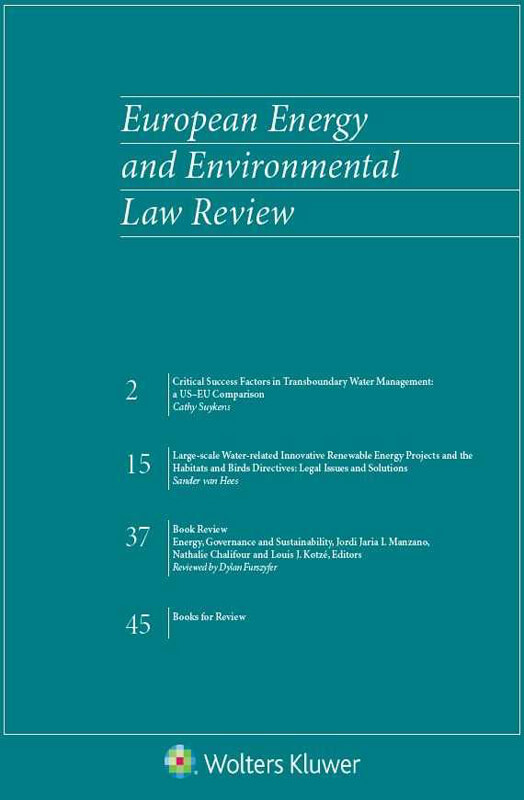Home > All journals > European Energy and Environmental Law Review > 33(5) >

$25.00 - Rental (PDF) *
$49.00 - Article (PDF) *
Stanislava Nedeva
European Energy and Environmental Law Review
Volume 33, Issue 5 (2024) pp. 214 – 231
https://doi.org/10.54648/eelr2024014
Abstract
With the rapid expansion of bilateral investment treaties (BITs), investor-state arbitration has paved its way to becoming the most preferred dispute settlement method by investors. However, the investment arbitration system has also attracted ‘backlash’. One reason is the challenge to balance between protection of foreign investors and the recognition of host states’ legitimate public interests. With the current pressures to reform the investor-state dispute settlement (ISDS) system, there is a pressing need to offer a better balance between investor protection and host states’ sovereign right to regulate, as well as the wider public good such regulatory measures might have, especially in the context of environmental protection and human rights. This article argues for a better symmetry between foreign investor’s treaty-based claims and host states’ environmental and human rights (EHR) claims to acknowledge the public interests – social, economic, welfare, etc. In particular, it advocates for: the strengthened presence of independent experts and amicus curiae, a proportionality approach; and the overarching development of counterclaims as a consideration not only of the host state’s capacity to regulate but also the wider repercussions of such regulations on the public as well as the conduct of foreign investors.
Keywords
public interest, investor-state, arbitration, human rights, environmental, counterclaims, reform, corporate responsibility.
Extract
